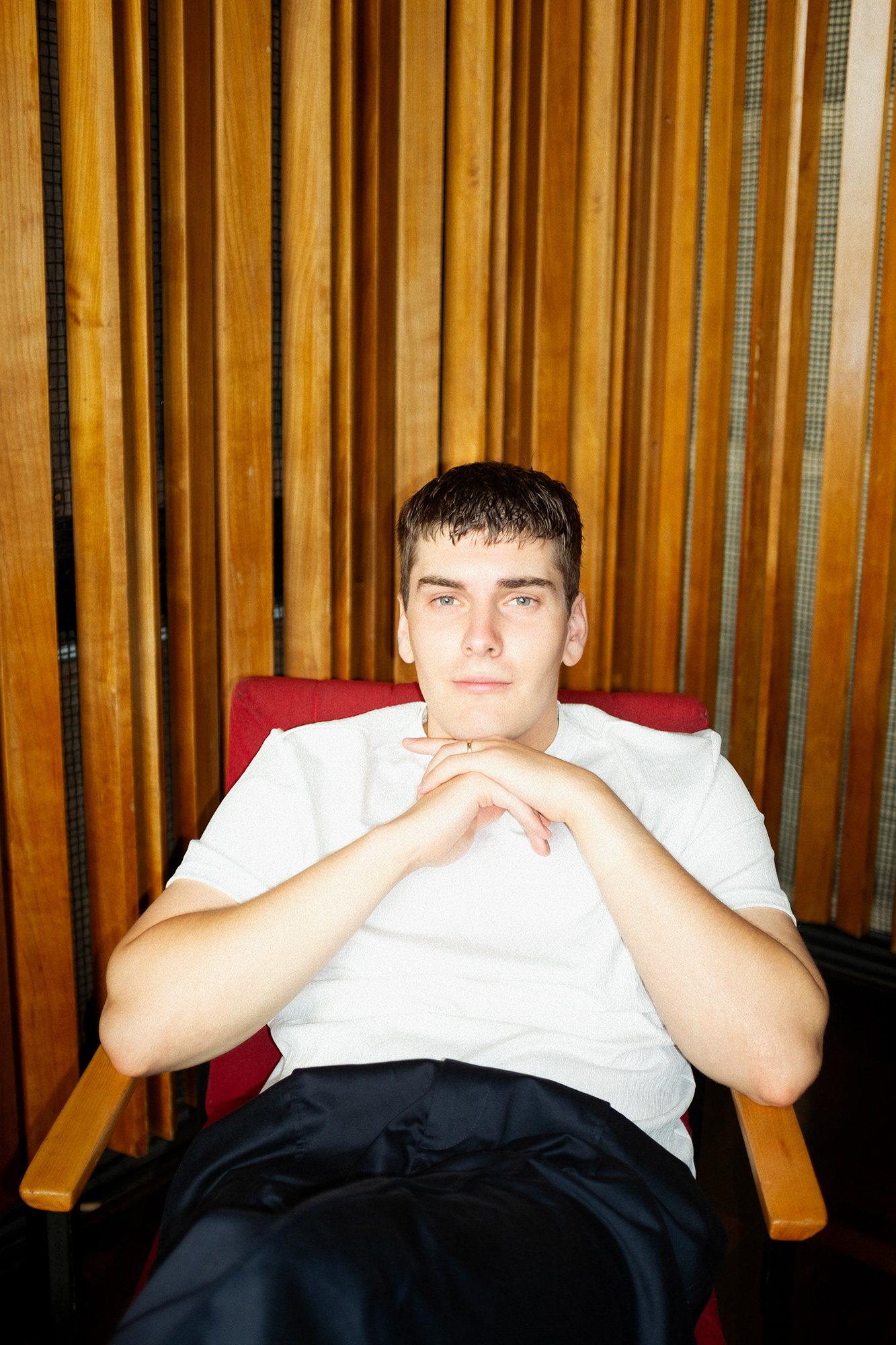German director Joscha Bongard on Influencer Families and His Satirical Drama Babystar
.
VERDICT: Joscha Bongard discussed the commodification of intimacy and the influencer industry as his debut fiction feature 'Babystar' bowed in Toronto.
Anxiety around the vanishing boundaries between our online and offline worlds is a burning concern of our times — and German director Joscha Bongard drew on his background in YouTube management to go deep into the ramifications for relationship dynamics in his unsettling social satire Babystar, which focuses on a family of influencers.
In the film, which had its world premiere at the Toronto International Film Festival, teenager Luca (Maja Bons) has been at the centre of the content her parents produce as they build a vlogging empire monetising their domestic life. When they decide to have another baby, she spirals into an identity crisis, as her sense of alienation grows. It’s Bongard’s first fiction feature, and follows his 2022 documentary Pornfluencer, which delved into similar thematic territory in its portrait of a couple based in Cyprus who make internet porn.
“With Babystar, what we hope to do is to talk about not just influencers but about our society,” said the director, when we spoke to him ahead of the Toronto premiere. “We need to rethink if we really want to commodify everything we have and every intimate relationship, and if this is really a strategy for living together, or if there should be borders. I have the feeling we are somehow there already; we talked to some influencers who said there was a house next to them getting sold, and were wondering if they should buy it just to renovate it and make content out of it.”
Bongard, who lives between his hometown of Kassel and Berlin, interned at a YouTube channel network before studying film, at a time influencers were a new and rarer phenomenon. “It was quite an interesting time, because it was this golden age of social media, and insane amounts of money were being paid to these young YouTubers in Germany back then. This influencer thing stayed in my head and it took me a while to come back to it, but when I did I decided to explore the private power dynamics of a family, something we all know, but in a very hyper way.”
A lot of thought went into how to represent this world on screen in a manner that looked convincing, said Bongard. “It was very important to make content in the film that feels real because we know it so well, therefore we shot on iPhones and really tried to make it as basic as possible and to really find the right tone of the social media content we produced. In our motion design we worked with advertising. Every brand in the film is pixellated because we really wanted to point the people to them, because we got so blind seeing them everywhere.” A small age gap between Maya and her parents was important for the casting. “We always had this idea when writing that the parents are YouTubers themselves from the early times, and so we had the feeling they had to be pretty young.”
We enter a world of tension between an invasive, always-on exposure, where even time in the womb is on camera, and an alienating compartmentalisation, as if all the characters have been quietly encased in glass. “Most of the people sharing so much online are very private people. They don’t have too much connection to the outside, and really tend to be in their golden cage somehow, or like being in their home and don’t mingle too much, and this I also find very interesting,” said Bongard.
“My D.O.P. Jakob Sinsel and I were pretty clear that we wanted a film that is about social media but not a social media film, so it was very important to us that we somehow find an antithesis to social media and really try to have people look at the images for a longer time,” Bongard said. “We talked a lot about voyeurism, and we often chose to have our camera above the characters to really show how this life is very lonely.”
Despite the dystopian aspects of Babystar, Bongard is optimistic about the possibilities for rebellion as a way out of the modern discontents that the internet era has fostered. “I think everything in life comes in waves, and I think we are in the extreme of the wave at the moment somehow,” he said. “I think there will be a way back to getting more into real human connections again. But on the other hand, if we choose to stay in our late capitalism this will be the way, and we can even add AI like a cherry on top now to the very interesting human experience we have been facing with social media since it started.”


